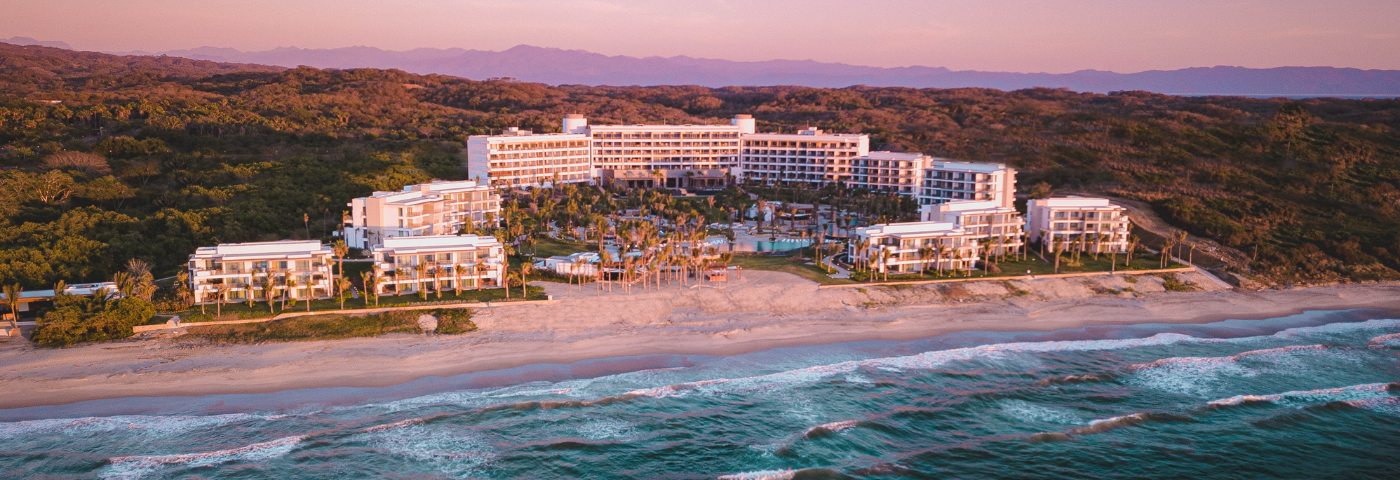Continuing with ILTM’s Leading The Way series, this week we speak to Dino Michael, the Senior Vice President and Global Category Head of Luxury Brands for the Hilton Portfolio. Today the topics include how to succeed in the travel industry and how brands might recover revenue for 2021.
Do you think 2020 is the year that will mark a change for our industry and if so, what do you think will change?
Guest expectations about travel are changing, and we need to continue to innovate to find unique solutions for today’s unprecedented challenges. 2020 is all about flexibility and adaptability in every sense. While we are all striving to strike the right balance in work and life, I think meetings and events are an area where we have the greatest opportunity to creatively adapt to the current environment. We need to make efforts to create unique and seamless experiences that have hybrid elements of both physical and virtual presence – leading with safe practices to give consumers peace of mind from the onset.
I think we will also see a continued blurring of business and leisure travel as some may be traveling a bit less, or leveraging the ‘flexcation’ trend that has become increasingly popular. In terms of unique solutions in the current environment, one such opportunity is finding alternative uses for our hotel guest rooms and spaces for things like remote work or extended stays. For example, our Conrad Punta de Mita resort, which opens this month, is offering a Work From Paradise package that allows guests to leverage technology to take their work abroad while reconnecting with family in a beautiful setting.
What have you come to appreciate this year?
The appreciation for one’s own country and exploring what is close to home has been a gift for many during this period. I have discovered parts of London that I never knew existed which is surprising given I was born here. Personally, given that my travel schedule pre-COVID kept me away from my family for up to three weeks a month, the extra time spent with them has been wonderful. I have especially enjoyed this stretch with my eldest son who leaves for University soon. Overall, this year has underscored the need to stay connected with family and colleagues, and will not be something I take for granted in the future.
What would you say are the core characteristics needed to be successful in the luxury travel industry now?
Listening to and understanding consumers is critical to success. While we have always been laser-focused on service, in a post-COVID world, being able to read a guest and provide truly intuitive service will be more paramount than ever. Some will be more comfortable travelling than others, and we need to determine how to best accommodate all types of travellers with great flexibility. Having the ability to adapt quickly to situations that can change in a matter of hours or days will remain key, as will be maintaining a strong ecosystem to support travellers as plans alter. Our customer feedback is critical and we are responding to their needs more quickly than ever – creating innovative programs and making adjustments to our policies to provide customers with maximum flexibility while travel remains restricted in many parts of the world.
With wellness, sustainability and conscious travel becoming increasingly mainstream, is it becoming more difficult to set yourself apart from the rest of the market?
We have always tried to maintain a unique selling proposition in our industry, whether it’s our service ethos, our footprint in the world or our initiatives as an enterprise. One of the great things about our luxury brands is being a part of Hilton and the leading Corporate Responsibility program that defines us. Loyalty isn’t about introducing the latest trend, but more about ensuring you continue to understand the guest on multiple levels. As stewards of the destinations in which we operate, we must remain committed to investing our skills and support to build our communities’ resilience and growth. As part of this commitment, we invest in a wide range of programs, and last year we established the Hilton Effect Foundation, which now serves as our international philanthropic arm. We have also set aggressive goals which commit us to double our social impact investments and cut our environmental footprint in half by 2030. We believe efforts like these help set us apart and generate guest loyalty.
What project or venture are you currently most excited about?
We are fortunate to have an exciting and robust pipeline making it difficult to name just one. Our development shows no signs of slowing down with several key signings across the luxury portfolio where over the next 18 months we will add 15 hotels and resorts, including the aforementioned Conrad Punta Mita, a resort in Mexico, and a new project we are announcing in the East Indian Ocean as part of our LXR collection brand. I suppose if I had to highlight one project, the re-opening of the iconic Waldorf Astoria New York following a full restoration tops the list. It is a privilege to be a part of such a significant piece of New York’s history and so many people have a story from this hotel.
Did you or do you have anyone you would consider a mentor? If so, who and how have they helped you realise your potential?
I’ve been a part of Hilton for over a decade and have been fortunate to work with so many talented individuals who have supported my career throughout, but I take significant inspiration from our executive committee. Despite the size of our organisation, the direct engagement we have with our leaders is unique and the way we have responded to the current crisis, the speed of implementing new initiatives such as Hilton CleanStay and EventReady is amazing. Chris Nassetta needs no introduction and his impact on Hilton has been transformative. And there are two people in particular I would consider mentors – the first is our Chief Brand Officer, Martin Rinck, who always puts the guests at the forefront of any discussion. The second is one of my oldest friends who works in a very different type of organisation – it’s great to have opposing viewpoints, particularly from someone who has no insight into the world of hotels and travel.
What can and should luxury travel brands be doing to help replenish lost revenue in 2021?
Luxury brands should continue to focus on service and personalisation. This will be something many will struggle to deliver on, with reduced headcount and cost overhead pressures, but is critical to maintaining the unique luxury experience for guests. Also key will be leveraging strategic partnerships with complementary industries to look at broadening appeal and customer base, and leveraging multiple activities on-site to encourage locals to enjoy a staycation with wellness, F&B and other experiences. I won’t give away all of our plans, but expect continued creative efforts to maintain safe and special experiences!


